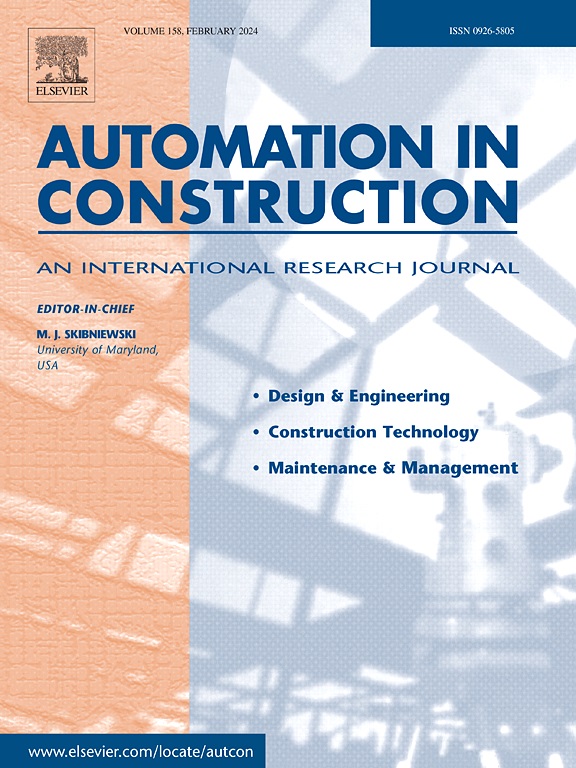利用教师指导的一致性和对比度学习对建筑遗产进行弱监督三维点云语义分割
IF 9.6
1区 工程技术
Q1 CONSTRUCTION & BUILDING TECHNOLOGY
引用次数: 0
摘要
点云语义分割对管理和保护建筑遗产意义重大。目前,全监督方法需要大量注释数据,而弱监督方法很难直接应用于建筑遗产。本文针对建筑遗产点云语义分割提出了端到端的教师指导一致性和对比学习弱监督(TCCWS)框架,可充分利用有限的标注点来训练网络。具体来说,设计了一个师生框架来生成伪标签,并提出了一个伪标签划分模块来区分可靠点集和模糊点集。在此基础上,设计了一种一致性和对比性学习策略,充分利用监督信号来学习点云的特征。该框架在 ArCH 数据集和自采集点云上进行了测试,结果表明,所提出的方法只需使用 0.1% 的注释点就能实现对建筑遗产的有效语义分割。本文章由计算机程序翻译,如有差异,请以英文原文为准。
Weakly supervised 3D point cloud semantic segmentation for architectural heritage using teacher-guided consistency and contrast learning
Point cloud semantic segmentation is significant for managing and protecting architectural heritage. Currently, fully supervised methods require a large amount of annotated data, while weakly supervised methods are difficult to transfer directly to architectural heritage. This paper proposes an end-to-end teacher-guided consistency and contrastive learning weakly supervised (TCCWS) framework for architectural heritage point cloud semantic segmentation, which can fully utilize limited labeled points to train network. Specifically, a teacher-student framework is designed to generate pseudo labels and a pseudo label dividing module is proposed to distinguish reliable and ambiguous point sets. Based on it, a consistency and contrastive learning strategy is designed to fully utilize supervision signals to learn the features of point clouds. The framework is tested on the ArCH dataset and self-collected point cloud, which demonstrates that the proposed method can achieve effective semantic segmentation of architectural heritage using only 0.1 % of annotated points.
求助全文
通过发布文献求助,成功后即可免费获取论文全文。
去求助
来源期刊

Automation in Construction
工程技术-工程:土木
CiteScore
19.20
自引率
16.50%
发文量
563
审稿时长
8.5 months
期刊介绍:
Automation in Construction is an international journal that focuses on publishing original research papers related to the use of Information Technologies in various aspects of the construction industry. The journal covers topics such as design, engineering, construction technologies, and the maintenance and management of constructed facilities.
The scope of Automation in Construction is extensive and covers all stages of the construction life cycle. This includes initial planning and design, construction of the facility, operation and maintenance, as well as the eventual dismantling and recycling of buildings and engineering structures.
 求助内容:
求助内容: 应助结果提醒方式:
应助结果提醒方式:


